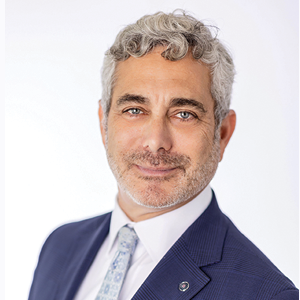Unhappy with Your Trial Outcome & Sentence? Here’s How We Can Help
Defendants in criminal cases are often unhappy with the trial outcome and sentences that judges hand down to them. Fortunately, a sentence received when someone is convicted of a crime is not always the final word. There are ways in which a skilled criminal defense attorney can assist a defendant with a poor outcome to improve, or sometimes even change that outcome.
Changing the Outcome of Your District Court Case
 In the State of Maryland, many criminal cases can be tried in the District Court. The District Court is a State court with branches in each Maryland county and Baltimore City, some of which have multiple District Court branches at various location throughout the county. While the District Court generally only handles misdemeanor criminal cases (with a few exceptions such as felony theft) some of those matters can carry many years in prison.
In the State of Maryland, many criminal cases can be tried in the District Court. The District Court is a State court with branches in each Maryland county and Baltimore City, some of which have multiple District Court branches at various location throughout the county. While the District Court generally only handles misdemeanor criminal cases (with a few exceptions such as felony theft) some of those matters can carry many years in prison.
Even a simple second-degree misdemeanor assault has a maximum penalty of up to 10 years in prison. However, a criminal defendant who is unhappy with the outcome of their District Court case has the right to a de novo appeal to the Circuit Court for the County in which their case was tried. This appeal must be filed within 30 days of the date upon which the defendant received their sentence.
Appeals
A de novo appeal means that the entire trial process begins anew. In other words, the Defendant gets a completely new trial in the Circuit Court [The Circuit Court is the county courthouse]. Circuit Courts handle most felony cases and all jury trials (as there are no juries in District Court). If a Defendant takes an appeal from a District Court conviction, they will likely have to continue serving whatever sentence or probation the trial judge in the District Court gave them, though in some rare instances a District Court judge will allow a Defendant to post an appeal bond which would allow them to remain free during the pendency of the appeal.
An appeal from a District Court judge’s sentence is not a guarantee of a better result in the Circuit Court, but it does give the defendant a “second bite of the apple”. Since the appeal from the District Court is an appeal of right, there is nothing that the State can do to prevent a defendant from availing themselves of a new trial.
Even if a defendant plead guilty in the District Court and simply did not like the sentence that they received, they can still appeal the sentence and “get a new trial” in the Circuit Court, even if their only purpose for filing the appeal is to see if another judge in the Circuit Court will give them a better sentence if they plead guilty in the Circuit Court.
Modification of a Sentence That You Are Unhappy With
If a Defendant is sentenced in the District Court, they do not have to file an appeal to receive a better sentence. It is possible that a judge will modify the original sentence given if the defendant’s attorney files a Motion to Modify their sentence within 90 days of the date that the sentence was handed down. Modifications of sentences are governed by Maryland Rules, Rule 4-345. This rule permits a defendant to file a motion with the court requesting that their sentence be modified or reduced.
Ordinarily, a judge will not be inclined to modify a defendant’s sentence within the first few months of the Defendant receiving it, but this motion does have to be filed within the 90-day time period set by statute or you can never file it. This is why an experienced criminal defense attorney will often, at the time of the original sentencing, request that a judge hold a motion for modification sub curia.
Sub Curia means to hold “under consideration” or “under law” until such time as a hearing is requested. By filing a sentencing modification request and holding it “under consideration”, a defendant can meet the required time limit for filing, but then allow the motion to essentially “sit” in the Court’s file until such time as a hearing is requested on the motion. The Motion to Modify which the Court agrees to hold sub curia can sit for up to five (5) years, but no longer than that.
When a Defendant has reached a certain milestone in their sentence (i.e. completed drug treatment, anger management, paid restitution, etc.) or completed (or substantially completed) a term or portion of probation, then their attorney may request the Court set a hearing on the Motion to Modify. If the hearing request is granted, the defendant and their attorney will come back to court and ask the judge to change the sentence. The changes to a sentence can be a shortening or ending of any incarceration or probation.
In some cases, a modification will result in the defendant’s conviction being stricken and substituted with a disposition of Probation Before Judgement. A Probation Before Judgement is not considered a conviction, so a person who receives this disposition can then say that they were not convicted of the crime for which they were originally sentenced.
Motions for Modification of Sentence can be filed after sentencing in criminal cases whether the sentence was received in the District Court or the Circuit Court but is it important to make certain that your lawyer prepares the judge at the time of the original sentencing for the likelihood that they will be filing such a motion and ask the judge to “hold it."
The proper filing of a Motion for Modification is an important tool that is available to address a sentence that you are unhappy with. However, be aware that the time limits for filing these motions are short.
Should you or a loved one receive a sentence with which you are unhappy, immediately reach out to our team of experienced attorneys to find out whether an Appeal or Motion to modify is right for you.


